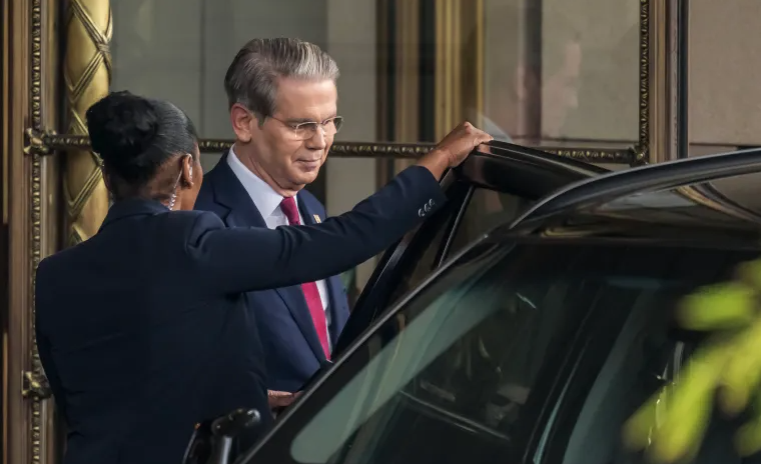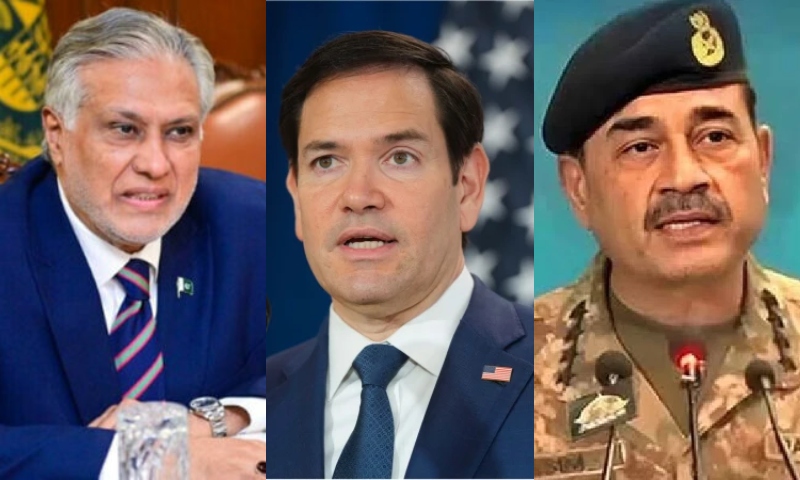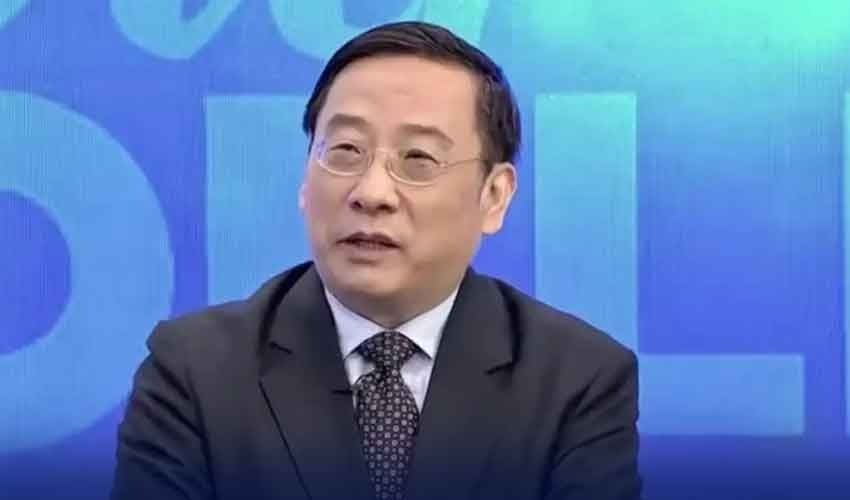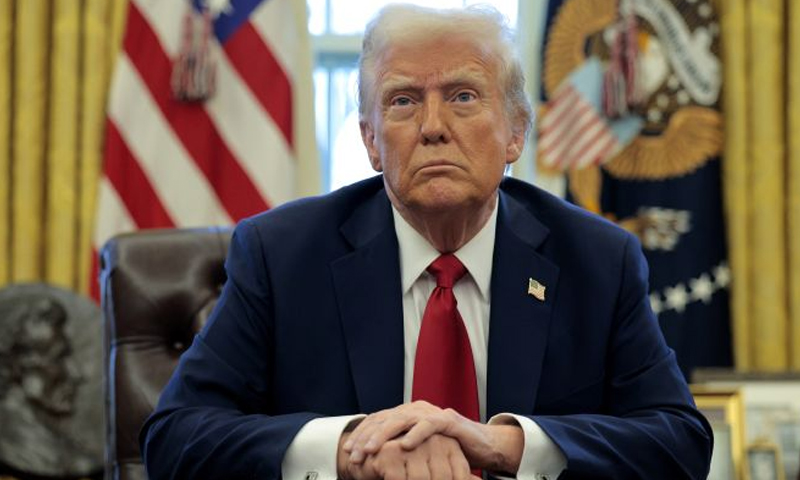WORLD NEWS

China's Trade Envoy, He Lifeng, and US Treasury Secretary Scott Bessent have met in Geneva, Switzerland, in a bid to ease the ongoing trade conflict that has been causing significant disruptions in global markets. The talks mark the first official engagement between the two superpowers since the US imposed a 145 percent tariff on Chinese goods, prompting retaliatory measures from China with a 125 percent duty on US imports.
The meeting, which took place at an undisclosed location, was held in the presence of diplomats and officials and lasted approximately two hours. A motorcade of vehicles was seen leaving the residence of the Swiss Ambassador to the UN in Cologny, where the talks took place, signaling the sensitive nature of the discussions. Following the meeting, the delegation proceeded to a luncheon that had been pre-arranged.
The trade dispute began in May when US President Donald Trump announced sweeping duties on goods from nearly every country, including China. These duties, which are set to last for 90 days, have sparked a global trade war. Experts believe that China is seeking a 90-day waiver and a reduction of the 145 percent tariff, possibly to 80 percent—as suggested by Trump in a Truth Social post. However, the US has insisted that any tariff reduction will require concessions from China.
US Treasury Secretary Scott Bessent has emphasized that the primary goal of the talks is de-escalation, with both sides seeking to ease the tension and avoid further damage to their respective economies. Sun Yun, Director of the China Programme at the Stimson Center, explained that even a small reduction in tariffs could have a positive impact by signaling both sides' willingness to ease hostilities.
The US tariffs were imposed under the justification of unfair trade practices, with Trump accusing Beijing of failing to curb the export of chemicals used in the production of fentanyl, a deadly synthetic opioid. In response, China has made it clear that it will not bow to what it calls “imperialist” pressure, stating that it will not be bullied by the US.
Despite high tensions and mistrust, both sides have been keen to avoid showing weakness, though economic analysts are maintaining low expectations for a major breakthrough. Trump has stated that the US initiated the talks, while Beijing claims that the US made the request.
Switzerland’s Economy Minister Guy Parmelin, who met with both parties earlier in the week, expressed cautious optimism. "The fact that the talks are happening is already a success," he said, adding that a roadmap for further discussions could help lower tensions and potentially lead to more productive negotiations.




